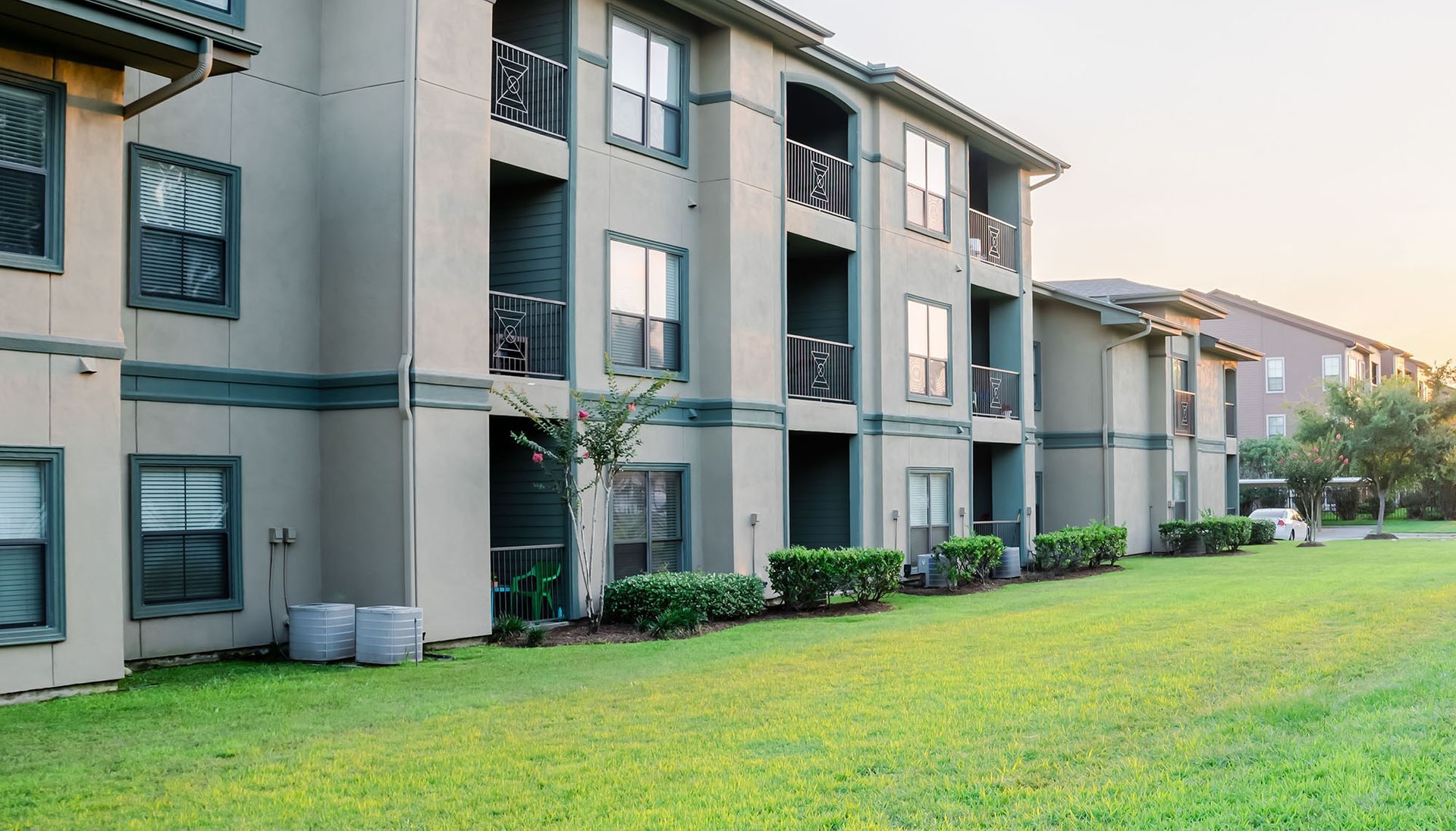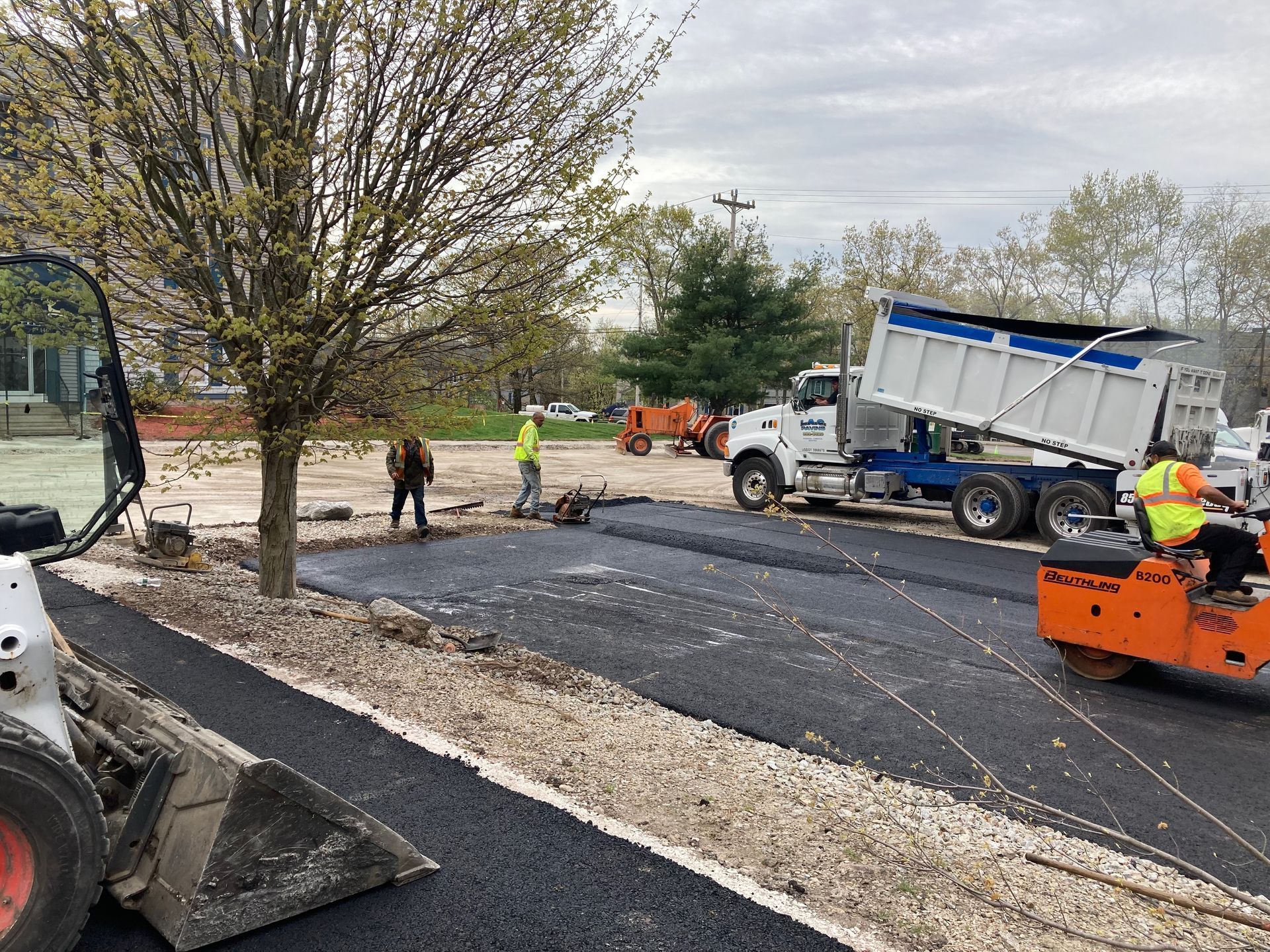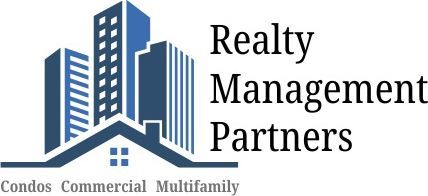Is It Time? How to tell if it’s time for your Homeowner/Condominium Association to change Property Managers.
Tim Wege • May 16, 2024
Is It Time?
How to tell if it’s time for your Homeowner/Condominium Association to change Property Managers.
Your association’s board meetings have been going well for a long time, but recently there is a new tension in the room. You notice body language around the table after your management company reports that all is good, but lacks data. Board members start asking questions searching for more detail and answers are vague. Perhaps you are surprised by the lack of funds to pay for recent capital expenses and wonder – why aren’t we better prepared for this? So, you return to historic Board Minutes to refresh your memory on earlier decisions and notice a lack of information. Subsequently, you notice homeowner complaints are on the rise about vendor performance, and you all start to wonder what’s happening.
While no property management team or association board is perfect, these are telltale signs that something’s up and further investigation is necessary. Hopefully, if both teams are willing to be transparent and trust for each other is intact, the above issues can be worked out and the business relationship will be better for it. However, if distrust, vagueness and dissatisfaction are not resolved, you would be wise to interview other management companies and get perspective, because changing property managers is not something that should be taken lightly. At the same time, don’t be tempted by inertia simply to avoid the work involved in making a change when it’s necessary. Once you find the right property management company for this season in your association’s history, you will make great strides in achieving today’s priorities and protecting homeowner values in the future.
How to Evaluate – The Scorecard
One approach to determining if the time has come to replace your current property manager is “the scorecard”. Upon entering into an agreement with your current management company there was a proposal and a contract. Create a list of the services your board required of the property manager in the contract and have each board member rate how well these services have been met. You can use a numeric value or pass/fail. Either way, it focuses your team on the issues rather than an emotional rational that’s been brewing or a personal agenda that doesn’t have the association’s best interest in mind. Be sure to identify real situations and not just opinions.
In addition, be sure you are not requiring effort from your property manager that was never part of the contract. Undefined expectations will never be met and can ruin any relationship, so be wise in your evaluation. If there is clear, consistent failure found in your assessment that was appropriately addressed yet left uncorrected by the property manager, you have your answer – move on. But if there were a few one-time failures that were amended, keep evaluating the criteria objectively while paying attention to the other stakeholders’ level of trust. If the trust has eroded to the point where the board and homeowners fear risking more failure and have lost confidence and respect for your management team, it’s probably time to move on.
Remember, as a board, you have the fiduciary responsibility to oversee and make decisions for the association. Partnering with the right management company for your association is critical to your community’s success.
What to Evaluate – Non-negotiables in Property Management Services
In many cases, associations grow dissatisfied with their management firm because the original set of requirements and expectations were ill-defined from the beginning. As we meet with board members in search of finding a new Property Management partner, we learn the history of how their current management company was secured. Often times it was many years ago with different board members who lacked understanding and experience on association management. This is a very common trend, which is why New Star Properties offers seminars discussing the financial, legal and practical work required of homeowner and condo association board members. The results are more confident and effective leaders who lead and serve their community.
Listed below are the non-negotiable services of an association property manager. If you’ve already included this criterion in your current contract, your evaluation process should be straightforward. However, if any of these critical components are missing it would behoove your association to update your current contract if possible, or start interviewing other candidates.
•Financial Expertise: Your Property Manager should have a clear and proven record of leading and supporting the board in Budgeting and Reserve planning. Oftentimes, associations struggle with significant deferred maintenance with looming capital projects while Reserve Funding may be grossly insufficient. It is a financially savvy Property Manager that can offer your association rectifying options, and make recommendations when securing funds is a necessity. Young communities must plan appropriately for the future to avoid these costly situations.
•Reserve Studies: Is there an updated Reserve Study (within 3-5 years) that gives guidance to the Board relative to funding levels and replacement timetables? Your management team should frequently reference Reserve plans and advise on potential shortfalls and strategies for stabilization. In addition, a knowledgeable management team will speak easily to the mechanics and necessity of a Reserve Study.
•Board Actions/Minutes: Your property manager must capture and create consistent accessibility to monthly board “action items” by clearly noting them on the Board Minutes. The Board should not have to “dog” the management team for follow up, nor should the discussion outcomes be too vague when referenced in the future.
•Transparency: Does the management team consistently convey an attitude of transparency? Is bid management handled professionally? Wanting to keep the Board as well as the community informed on progress of major projects, plans and budgets is what builds trust and accountability.
•Maintenance Work Orders: are they being addressed on a timely manner and meeting Board and community expectations? Some management teams have their own maintenance crews while others may contract with vendors. Either way, your property manager is responsible for the quality and delivery of those services.
•Routine Guidance: Is your property management team conversant with governance issues, have they even read your Covenants, Conditions and Restrictions and do they adhere to best practices? Experience in managing your type of association is what opens the doors to creative solutions, minimizes Board research and saves your community money.
•Collaboration: If your manager or the Board has an “us vs. them” attitude all team work will dissolve and everyone will dread monthly meetings. The board has clearly defined legal responsibilities and your Property Manager should have ample experience working with other associations thereby sparing you from making typical and costly mistakes – so engage in collaborative teamwork. Everyone will win!
Evaluating your property management situation objectively and making necessary changes will help to develop and keep your community financially healthy, build confidence among the ownership, protect property values and make the place you call home a pleasant community.
In 2015, New Star Properties introduced a new paradigm in property management that includes a broader view of association ownership than most companies. Today, New Star Properties provides complete services to meet the community’s shared property management needs, New Star RE which is a full-service brokerage is uniquely qualified to position and sell your home/condo when the time comes, and New Star Handyman is always ready to support owners when tackling those home projects not covered in the property management contract. Working with more than 30 communities in New England, representing over 3000 units, The New Star team is well versed in association living and a collaborative team on a mission to satisfy our valued communities.
How can we help you today?


By 7103377397
•
September 30, 2024
First, the good news! The fact that your community now has a new or updated study shows that a fundamental condo management task has been completed. The Board and community now have “eyes wide open” as to what the community is likely facing as plans are made to address capital replacement items such as roofs, streets, septic systems and the like. If this is your first Reserve Study in years or, perhaps, ever, there is a good chance the Board and community will experience “sticker shock” from the funding recommendations of the engineering firm. If you’re a Board Member contemplating the implications of having to raise the reserve contribution per unit by a significant margin (say $100/month) take a moment to understand the alternatives. Rightfully, any big move in the community’s Reserve Contribution is going to have a big effect on unit owner dues and the Board should work to fully understand the drivers behind the increase in reserve contribution and be reasonably comfortable answering questions when asked. Ideally, your management team is solidly behind the Board in understanding the recommendations and discussing various options. Before going too far, it’s important to understand the basic concepts associated with developing the Reserve Recommendations. First, the engineering team catalogues your community’s capital assets and follows up with estimates of Useful Life, Remaining Life, Replacement Cost and projected funding. Keep in mind that funding levels are typically referenced as a % of Full Funding (100%). Although 100% funding is a benchmark, few communities target full funding; mainly, because it’s typically not necessary and such a high funding level sets aside funds that will essentially be unused. Not that 100% is a “bad thing” but it puts unnecessary strain on homeowners who can put the excess funds to better use. On the other end of the funding strategy spectrum is a deficit forecast or any kind of funding plan that reflects less than 40% of full funding. Often, a community getting their first Reserve Study will see that if they continue with their current funding rate, forecast capital expenses will drain reserves and push the community into a funding crises somewhere in the future. While “Current Funding” scenarios often show a deficit for a first time analysis, your study should compute the percent funding resulting at year end for each of the 30-40 years covered in the study. Industry consensus indicates that anytime your community funding results in anything less than 25-40% funding, there is a real risk of unexpected or larger than expected expenses pushing Boards to consider a Special Assessment, loans or perhaps deferring maintenance. None of these outcomes are desirable. Recognizing that any funding strategy less than 25-40% (of full funding) really is not a viable option for the community; the Board is still stuck with developing a strategy to builds the community to health. So, what are the options? “Rip the Band-Aid off” If the Reserve Study is recommending a jump in the community’s reserve contribution and those contributions will extend for years (often adjusted by projected inflation rates), some Boards accept the move in one year. It is not unusual that a Board may look at Reserve recommendations and recognize the hike needed is not good news; but waiting only makes the gap worse with the eventuality of having to raise the funds in any case. In this scenario, the Board is very transparent with the community; reviewing the hard data from the Reserve Study and incorporates the full, recommended adjustment in the next budget cycle. In almost every case, there will be unit owners talking about “other expenses” such as taxes and other normal costs of living as a rationale for not moving the recommended number. However, at the end of the day, funding capital reserves for the eventual replacement of big ticket items is similar to someone driving their car and being notified that the brakes should be replaced. While funds may be tight, the car’s brakes are indifferent to the owner’s personal finances. Likewise, when roofs need replacement the structure is indifferent to the unit owner, or the community’s financial position. At some point, it must be done. Not infrequently, Boards wrestle with unit owners that express a total inability to meet the financial requirements of reserves. While this puts the Board in a tough position, the hard reality is that the Board has to make judgements in the best interest of the association. Funding the replacement needs of the community should not be established based on the “ability to pay”. As noted, like the car that requires brakes; the funding for association capital replacements must be met. On occasion, the hard result here is that some members of the community may determine that another living situation more suited to their budget may be necessary. Phased Scale Up While the “Rip the Band-Aid Off” approach is a common Board strategy, some Boards may look to “thread the needle” by phasing dues increases and moving the community toward a stable position; but over a couple years or so. One helpful illustration is a community that had a loan becoming fully paid off in 2 years. Without a major capital demands expected over the next couple years, the Board did boost the community’s reserve contribution about half way to the recommended, minimal level with the plan that the balance of “catch up” increase would be made once the loan was fully paid off (in 2 years). When the loan was paid, the previous debt service monies would be redirected to reserves. In any kind of “Phased Scale Up” Boards will want to compare your Reserve Study’s recommended end of year target reserve balance. At some point in the phased scale up (ideally within 2-4 years), your year end contributions will tie to the target year end numbers of the Reserve Study and your community will then be “on-track”. Obviously, there are variations on this strategy. It was very convenient for the Board illustration above to scale their payments just as their loan was about completed. The funds previously dedicated to debt service simply divert to Reserves in a transparent move to the community that also brought the association to financial health. Other scenarios can include going “part way” toward the recommended annual funding recommendation and then increasing the following year for the balance. However, when a Board pursues this strategy, they still need to backfill the opportunity they forfeit in Year 1 with higher increases in subsequent years; or simply settle for a lower percent funding with greater exposure risk to special assessments or other potential financial crises. Scale Up Coupled with a Special Assessment In some cases, the clock simply runs out on an established community. Perhaps no reserve study has ever been done or the management team never understood how to utilize the data and support board planning. For whatever reason, an established community now finds itself with a new Reserve Study recommending a significant increase in addition to immediately necessary replacements that cannot wait for a funding build up. While this scenario is exactly the reason that thoughtful, realistic, and data driven planning should be managed years in advance, the reality is that some communities flatly missed the opportunity and, now, must contend with urgent financial demands and recovery. In unusual cases like this, a Board may adopt the recommended annual reserve contribution as well as an injection of cash through Special Assessment. In one older community we now manage there was essentially nothing in Reserves. The new Board realized they needed to take the hard medicine of significant dues increases, most of which was directed to Reserves. In addition, to address pressing roof replacement issues, the Board engaged a Special Assessment for each of two sequential years. While the Reserve contributions would be building towards stability over the long term, the infusion of cash through special assessment covered the immediate need for roofs . Reserve Planning is not for the faint of heart. It requires data, understanding, problem solving and great communication skills. As this discussion concludes, I will note first that having a current Reserve Study is half the battle. You now have “eyes wide open”. You have data that is intelligible from which to understand your community’s position. From here, you explore your options. The decisions aren’t easy; but, with transparency and excellent communication throughout the budget and planning process, your solution will be understood by the majority of the community. Choosing wisely, future Boards and unit owners will be grateful for your proactive planning that protects the wellbeing of the association. About the Author Tim Wege is President of New Star Properties, launching the company with zero clients or staff in 2015. With a background in real estate, corporate finance and management, the company opened with a vision trained on excellence. Today, New Star manages over 3500 condominium units with a staff of more than 30.

By 7103377397
•
June 3, 2024
Reserve planning and project management are critical components of association management. While community planning for long term capital replacement projects is critical, this effort is frequently overlooked as some Boards may not be familiar with the process and their management teams may either not have the expertise or the commitment to work through the various challenges associated with evaluating reserves and assisting Boards with numbers and long term planning. The story below sets the context for one community’s history related to association reserve funding followed by the work involved to make sure a major capital project, a parking lot replacement, was fully scoped out with an effective bid management plan and, ultimately, the installation of a new parking lot that should meet the needs of the community for a couple decades, or more, to come. The Context – A Financially Stressed Community 6 Years Ago New Star’s familiarity with this community began in 2018 when the Board replaced a long established management team. Our team began management operations about August of that year. However, the budgeting and financial management upon are arrival was a train wreck. The reserve account was fully drained. The operating budget was running on fumes. By October of that year our office had to assemble a recovery budget for operations for approval and January implementation. While dues were adjusted to realistic operating levels, three investor members (a majority) of the Board turned down a Reserve Study recommendation to raise an additional $148,000 over two years. The Reserve Engineer recommended the immediate boost to Reserves as the balance was zero in January and the community had an extensive list of deferred maintenance items with big ticket items, such as three large parking lots, needing replacement. Although the community was solvent again in terms of day-to-day expenses (Operating Budget), the decision to continue to short reserves would end up delaying major replacement projects as well push the funding decision further down the road. Although the reserve study recommended asphalt replacement within a couple years, funding caused the community to deal with potholes and the failing parking lot until 2024. The Parking Lot Project Starting about February of 2024, four proposals were received to remove the old, broken up asphalt, curbing and sidewalks. Interesting enough all 4 proposals came from companies the New Star team had experience and all 4 bids were within a few thousand of each other. The scope of work was tight and with 4 proposals coming so close to each other, the Board was satisfied they were pursuing the right project that was priced at the right value. A selection was made for the winning vendor. With the notification to the winning vendor, New Star called another on-site meeting with the vendor to walk through the project and develop a clear demo and rebuild plan. This plan broke the large project down into phases. For example, on Day 1, the sidewalks and curbing were removed. Day 2 involved the removal of the parking lot and regrading and compacting surface preparation. Each day had specific instructions for the community pertaining to car movements and when cars had to be totally out of the lot and when they could return at the end of the day. Each day, New Star property management was on site to assess project pace, measure blacktop thickness and work through changes that became apparent as the project continued. With consistent inspection and communication with the vendor as well as updates to the community, the project finished perfectly on time and meeting Board expectations. Post Project – Next Steps for the Asphalt Lot Regarding the parking lot replacement project, the new lot is beautiful and fully striped. While the immediate project was a clear success for the community, the Board has been reminded that after a year the fresh asphalt will need to be seal coated and re-striped. Although the new lot is solid, the materials are still “curing” and will continue to cure for the next year. Once the new lot has been in place for a year, sealcoating is recommended to protect the new lot from ultraviolet rays (UV). Often, there is confusion on the merits of seal coating with some suggesting sealcoating is valuable only for cosmetic reasons. It looks nice! Although fresh sealcoat does look good, the mechanical reason for coating is protection from the sun excessively “drying” out the oils in the asphalt. If left unattended and unsealed, the new lot will age faster as the oils evaporate, the asphalt “dries out” and will eventually become brittle. Brittleness will lead to cracking and eventually pot holes. Typically, sealcoating will need to be reapplied every 5 years or so. As cracking will eventually emerge as the lot ages, the Board will have to be vigilant to keep these cracks filled about every 3 years. Crack filling, combined with sealcoating, will extend the useable life of a very important and expensive capital asset. More to do – Reserve Planning (again!) With zero in Reserves back in 2018, the community has been building reserves since. However, you may recall from the background to this case that the recommendation to jump start the reserve fund with $148,000 infusion early on was rejected by board members working on behalf of their investor clients. The investors eventually sold their position with resident unit owners now comprising the Board. Although budget planning really doesn’t begin until about September 2024, Board discussions are already under way to look at various funding options to bring reserves to targeted levels. Not isolated to this particular case study, numerous communities find over time that poor consideration for reserve funding is now showing itself with significant deferred maintenance and an increasingly pressing challenge of revitalizing reserves and addressing capital assets now in need of replacement. As daunting as the task can be, New Star is no stranger to collaborating with Boards to help sort out funding needs and options and transparently communicating to communities in a way that garners broad based support for tough choices upon which the community is dependent. Tim Wege is President and Founder of New Star Properties. With an MBA with a concentration in Finance, Tim held several management positions with a global chemical company. In 2015, Tim launched New Star with zero clients and zero staff. Today, the New Star team serves over 2500 units in condominiums, HOA’s, multifamily and commercial property management.
Learn More About
Realty Management Partners LLC
Serving New Hampshire and Northern Massachusetts area. Realty Management Partners LLC specializes in commercial property management and condominium management. Client-centered performance. Request a call back today.
serving Area
New Hampshire
Northern Massachusetts
and Surrounding Areas
Business Hours
- Mon - Fri
- -
- Sat - Sun
- Closed
Hi. Do you need any help?
Privacy Policy
| Do Not Share My Information
| Conditions of Use
| Notice and Take Down Policy
| Website Accessibility Policy
© 2025
The content on this website is owned by us and our licensors. Do not copy any content (including images) without our consent.


Share On: